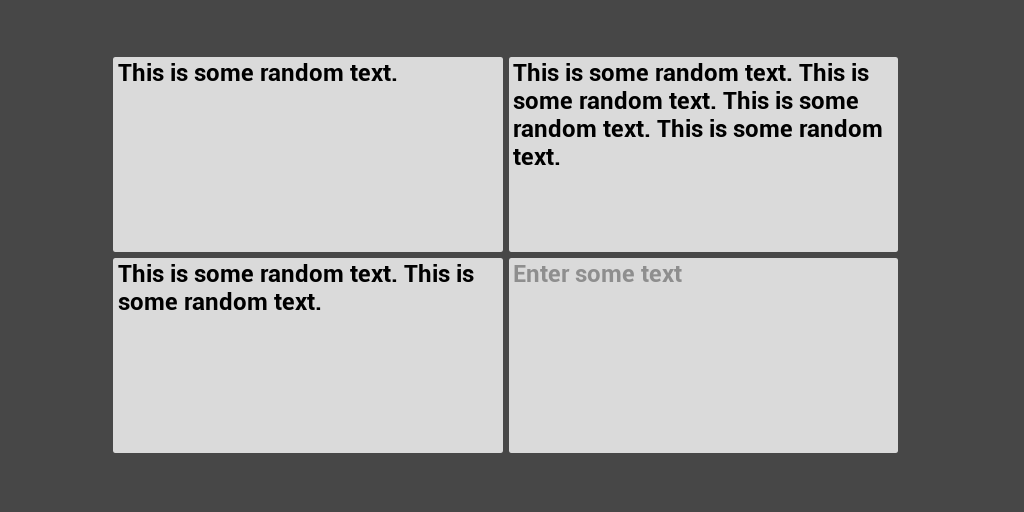
Improve multi-line editable text box keyboard and gamepad navigations
Introduction Still, as of UE 5.5, multi-line editable text boxes lack proper keyboard and gamepad navigation support. Let’s fix this without modifying the engine’s source code. I’ll experiment with a simple 2x2 grid of text boxes to demonstrate how we can implement smooth, unified navigation across both keyboard and gamepad input devices, which you can also recreate for testing purposes. Current Limitations Keyboard Arrow keys only allow navigation within the content of a single text box, and there’s no way to navigate between text boxes themselves....